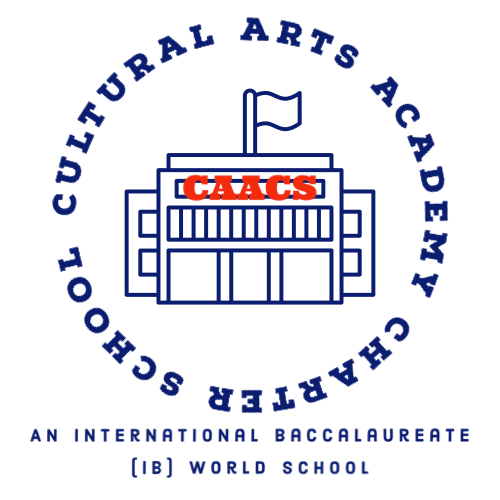Inquiry in Fourth Grade
Our fourth graders learn through the lens of six thematic inquiry units throughout their school year.
Inquiry Unit Theme One: How we express ourselves
Central Idea: Understanding diverse creative expression may create open- mindedness.
Sample Inquiry question asked by scholar: I wonder how lacrosse was a form of expression for the Haudenosaunee people?
Summative assessment: Scholars write an informational essay and create a project based on a choice board that includes options like poster, 3D model, and skit. Scholars present their projects to the class.
Key Concepts: Form, Reflection, Perspective
Subject Focus: Social Studies, Reading, Writing
Learner Profile Traits: Open-Minded, Inquirers, Knowledgeable
ATL Skills: Acquisition of Knowledge (Thinking Skill), Comprehension (Thinking Skill), Analysis (Thinking Skill), Respecting Others (Social Skill), Presenting (Communication Skill), Collecting Data (Research Skill)
Lines of Inquiry:
- Elements of cultural expressions vary to include art, dance, sport, craftwork, shelter, dress, language, religion, etc.
- Reflecting on a growing appreciation of diverse cultures builds empathy.
- Each culture is different but all possess beliefs, structures, and expressions.
Inquiry Unit Theme Two: Where we are in place and time
Central Idea: Cause and effect relationships influence human migrations.
Sample Inquiry question asked by scholar: I wonder about the causes and effects of the great migration?
Summative assessment: Scholars write a narrative essay from the perspective of migrant person.
Key Concepts: Form, Perspective, Causation
Subject Focus: Social Studies, Reading, Writing, Math, Drama
Learner Profile Traits: Knowledgeable, Thinker, Open-Minded
ATL Skills: Writing (Communication Skill), Cooperation (Social Skill), Analysis (Thinking Skill)
Lines of Inquiry:
- Humans have migrated frequently in various times and places.
- There are underlying causes of human migrations.
- There are effects that come along with human migrations.
Inquiry Unit Theme Three: How the world works
Central Idea: Humans design solutions to the world’s engineering problems.
Sample Inquiry question asked by scholar: I wonder how I can design a solution to the problems caused by tsunamis?
Summative assessment: Scholars write an informational essay describing their action plan, materials and design for their solution to the problem caused by a natural disaster of their choice. Students then choose a creative option from a choice board such as a 3D model or advertisement for their product to be presented to the class.
Key Concepts: Causation, Form
Subject Focus: Science, Math, Reading, Writing
Learner Profile Traits: Open-Minded, Communicator, Reflective
ATL Skills: Synthesis (Thinking Skill), Resolving Conflict (Social Skill), Presenting (Communication Skill), Planning (Research Skill)
Lines of Inquiry:
- The natural world can be problematic.
- The scientific method brings order to finding solutions.
- Engineers use knowledge and creativity to design.
Inquiry Unit Theme Four: Who we are
Central Idea: Human bodies are made up of systems.
Sample Inquiry question asked by scholar: I wonder how the muscular system functions and keeps the human body healthy?
Summative assessment: Scholars create a ten page powerpoint that requires them to research how the human body system of their choice functions. After completion of the body system powerpoint, scholars are instructed to trace, label, and illustrate a life-size diagram of the human body sytem of their choice.
Key Concepts: Form, Function
Subject Focus: Science, Health, Reading, Writing
Learner Profile Traits: Inquirer, Knowledgeable
ATL Skills: Reading, Writing, Cooperating, Presenting.
Lines of Inquiry:
- Human bodies are made up of cells.
- The nervous system and sensory organs gather information for the brain.
- The skeletal, muscle, skin, and digestive systems all serve important purposes.
Inquiry Unit Theme Five: How we organize ourselves
Central Idea: People organize themselves and trade because of geographic and economic factors.
Sample Inquiry question asked by scholar: I wonder how the natural resources of the New England region impact their economy?
Summative assessment: Scholars will create a presentation explaining how the natural resources and geography of any region in the world, of their interest, impacts that region’s economy and culture. Scholars will present to class. After presentations, scholars will take a written exam in which they must label each region presented, on a map, and list at least one natural resource from that region.
Key Concepts: Connection, Causation, Form
Subject Focus: Social Studies, Math, Reading, Writing, Art
Learner Profile Traits: Knowledgeable, Caring, Reflective
ATL Skills: Collecting Data, Interpreting Data, Presenting Research Findings.
Lines of Inquiry:
- Regions are classified based on geographic and cultural factors.
- Geographic features affect economies.
- Natural resources affect economies.
- Industrialization brings cultural change.
Inquiry Unit Theme Six: Sharing the planet
Central Idea: Humans share and reuse finite resources.
Sample Inquiry question asked by scholar: TBD
Summative assessment: TBD
Key Concepts: Change, Reflection, Responsibility
Subject Focus: Social Studies, Science, Reading, Writing
Learner Profile Traits: Principled, Inquirer, Caring
ATL Skills: TBD
Lines of Inquiry:
- Humans can make choices to conserve energy and resources.
- Human actions affect climate of our planet.
- Sustainable solutions to environmental problems require thought and action.
